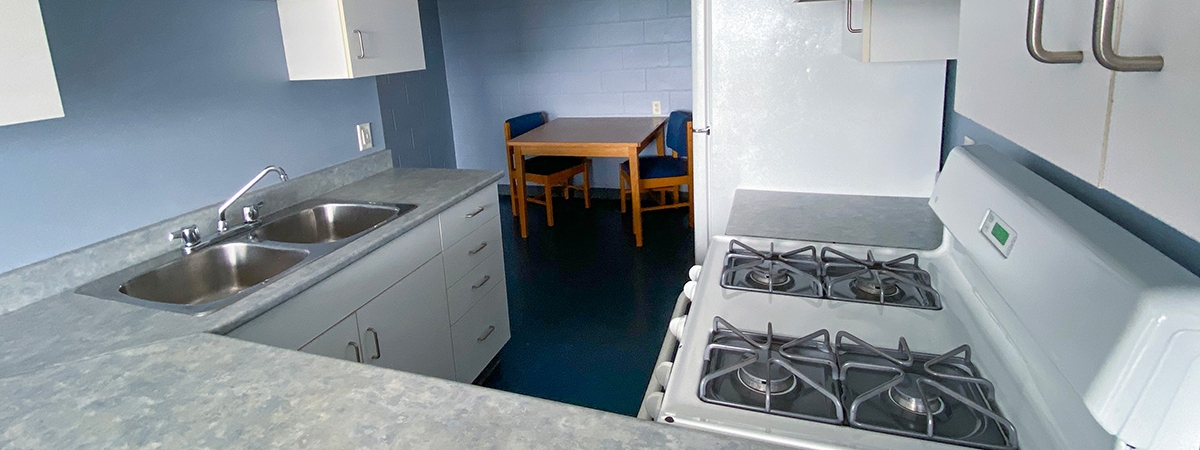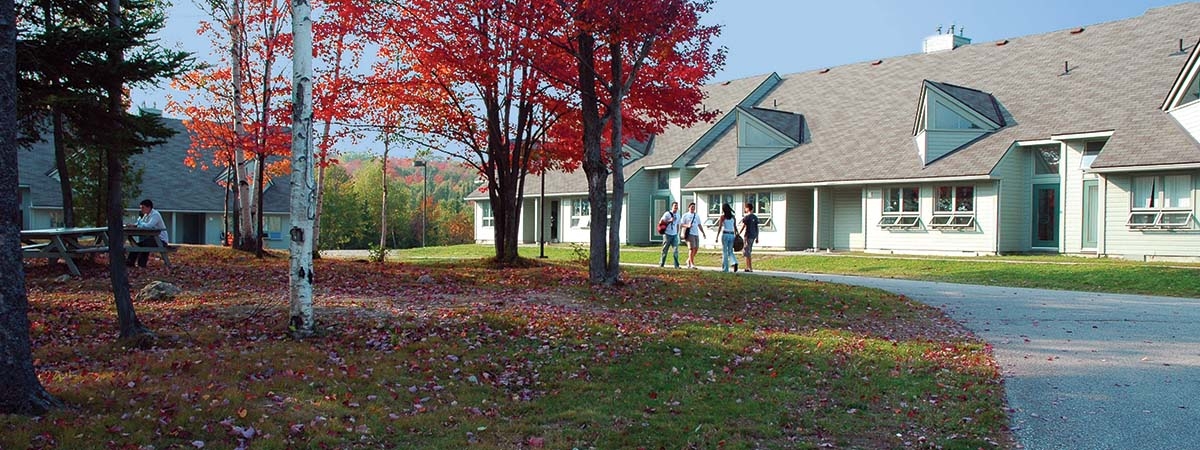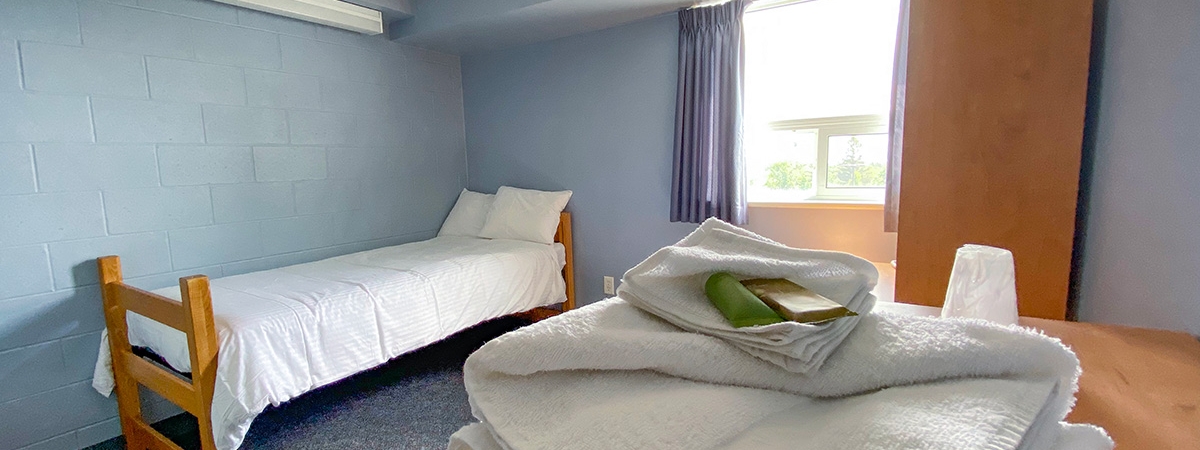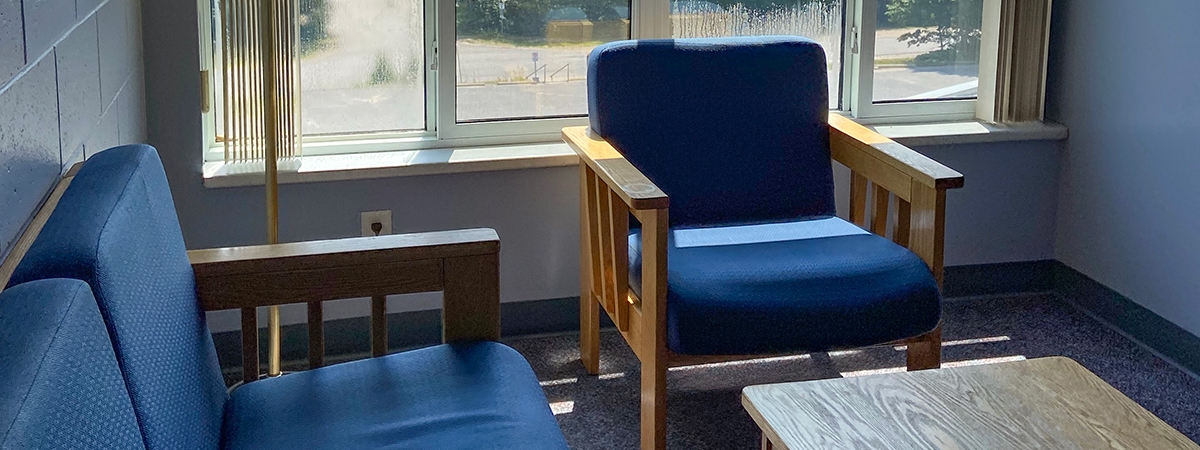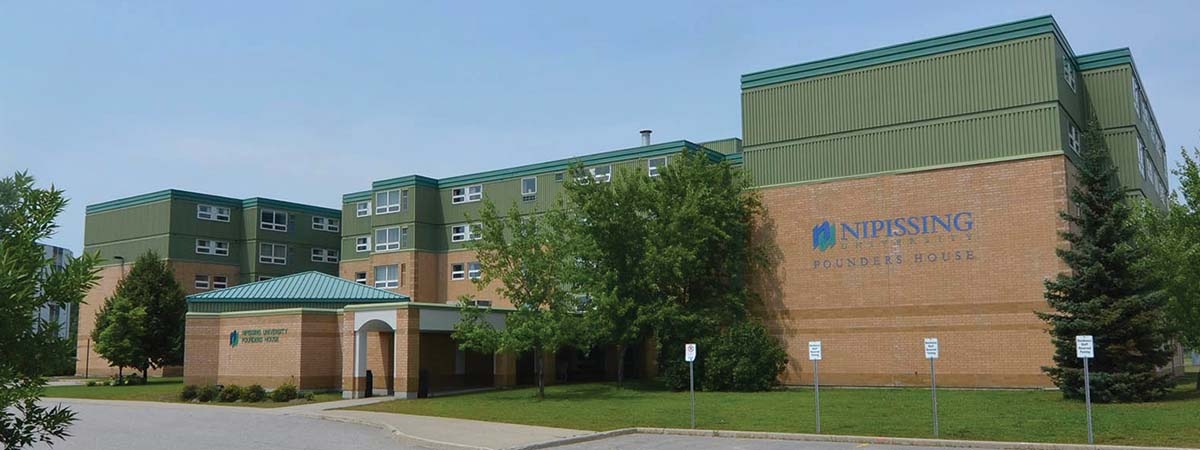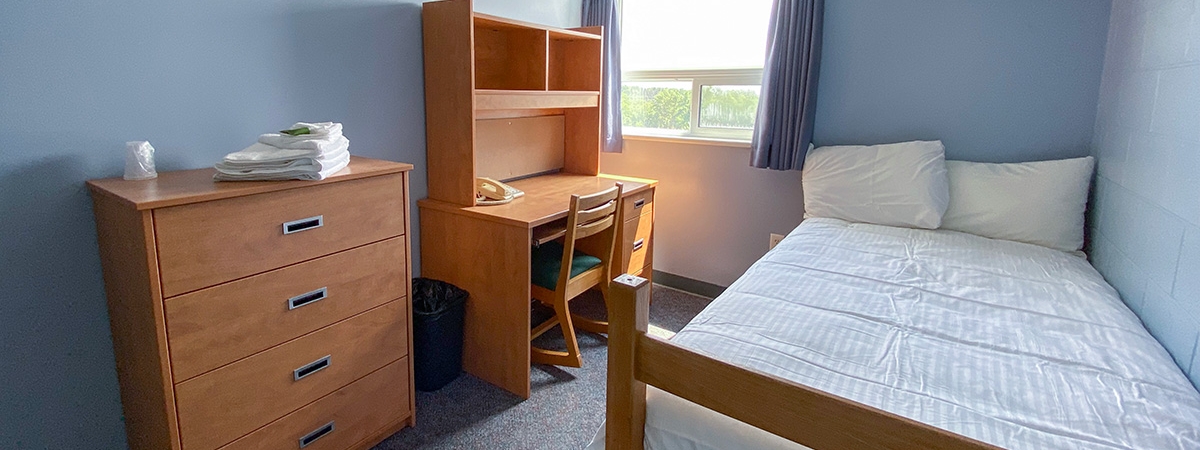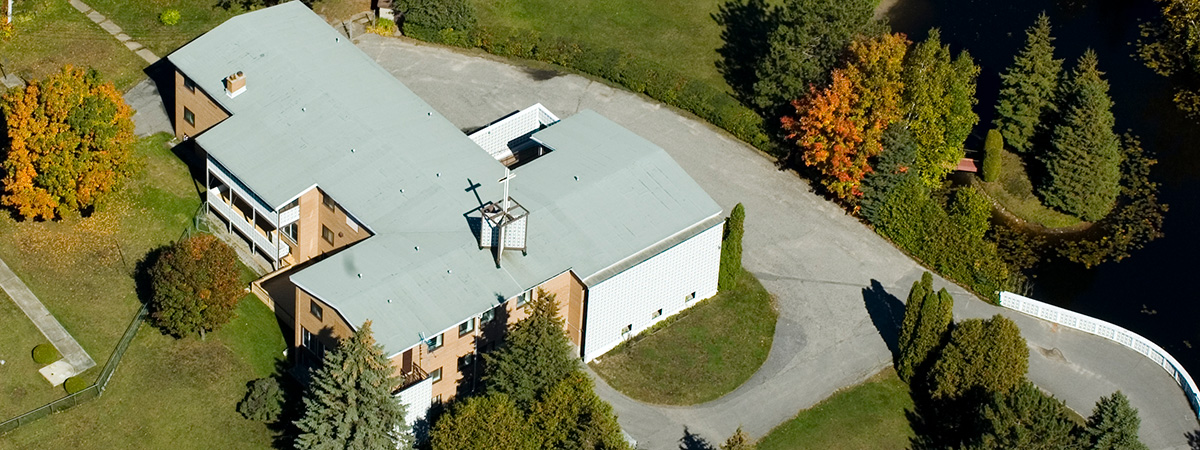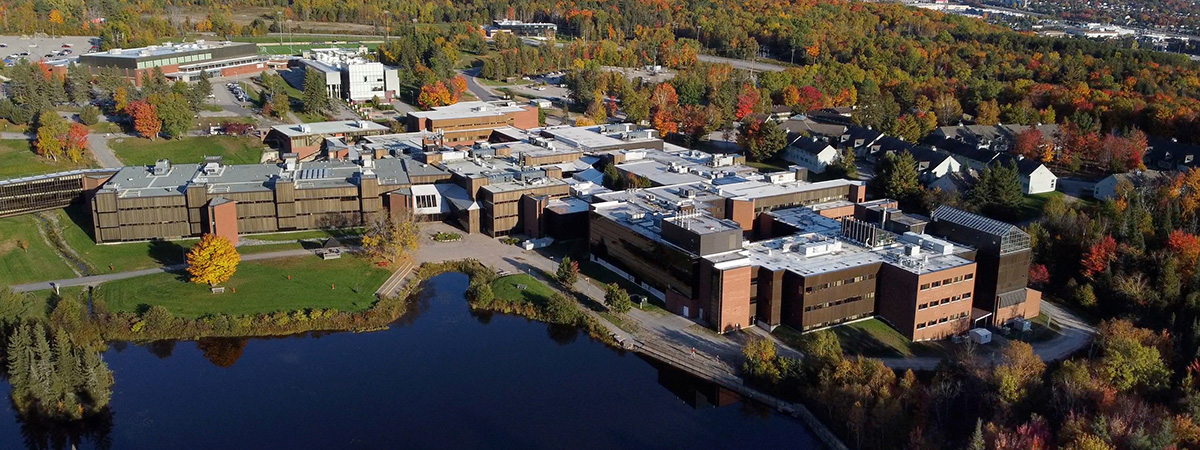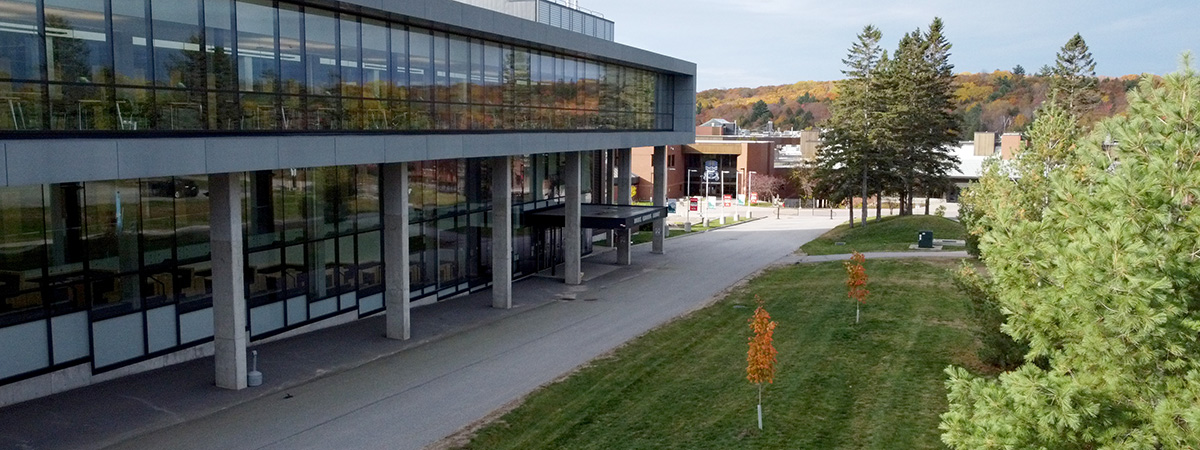-
Youth Workshops

Workshops

Hands-on learning experiences developed for youth.
Available Workshops
High School Transition

University seems so far away? Or is it? Through Extended Learning you can be part of professional sessions and workshops to experience a taste of the university atmosphere while completing something that interests you, the learner! It’s never too early to stand out! Do you have an idea of something you’d like to see?
More offerings coming soon
-
Residence Life
The 2025-26 Residence application is now open!
Welcome Lakers!
Welcome to Residence Life at Nipissing University. It is our hope that your stay in residence becomes one of the most rewarding experiences of your university journey. Our goal is to provide you with a safe, comfortable living and learning environment in which you may grow as an individual and develop long lasting relationships. Our team is committed to providing you with learning opportunities outside of the classroom that will offer you personal and academic growth, and help ease your transition to university.
Residence Life Mission
The broad mission of Residence Life is to build a sense of community within our residence system, which facilitates the personal growth, and academic development of students.
Values Statement
Residence Life at Nipissing University is a significant contributor to the educational experience of our students. The Residence Life department engages students and leaders in a vibrant community to enrich the student experience. To achieve this end, the Residence Life department embraces the following values guided by the knowledge and practices of the student affairs profession.
- Civility. We value civility. We strive to foster a culture of understanding and collective responsibility. In doing so, we challenge our students to understand the responsibilities of, and define, their own citizenship. With the recognition that students will use this awareness outside of the residence community, we promote a greater sense of globalism that extends beyond the university experience.
- Diversity. We value a community that is diverse, based on principles of equity, justice, and tolerance. We challenge community members to recognize the rights of all individuals to mutual respect and acceptance; and to embrace differences of race, culture, religion, creed, socio-economic background, gender, and sexual orientation, without biases.
- Innovation. We value innovation. We strive to provide an environment conducive to inquiry, in which innovation and creativity are fostered while addressing the current and future needs of our students and communities.
- Integrity. We value integrity, honesty, and pursuit of ethical action. We uphold the dignity of our community and its members by striving for truthfulness, honour achievements, and helping those among us in need, without judgment. We foster the development of good character and provide opportunities for our community members to grow in support of one another.
- Learning. We value learning. We strive to encourage an environment where students and leaders can be inspired to create communities of life-long learning. We develop an environment where academic and educational opportunities allow for personal and professional growth.
- Quality. We value consistent quality work in all aspects of residence life. We are committed to a friendly and helpful approach. Our exceptional work and leadership will assist and support students while fostering the needs of the ever-changing student.
- Wellness. We value wellness. We strive to create a community that appreciates a balanced lifestyle, one that actively promotes the benefits and practice of safer mental and physical health to all of its members. With the recognition that students will use these skills outside of the residence community, we endeavour to develop strong individuals who are purposefully engaged in their own well being.
Living in residence is all about meeting new people and exploring new ideas. It’s also about studying, socializing and making friends for life!
-
Off-Campus Living

Nipissing University’s Off Campus Living Program is dedicated to providing students who choose to live off campus with the support and resources they need to become informed residents, promoting active participation in the community and on campus. By providing access to advertising websites, through Places4Students and SpacesShared, students have access to a variety of housing options to suit their specific needs.
Getting Started:
The search for a place to live should begin early as housing can be more difficult to find toward the end of the summer - we strongly encourage all students to search for housing early.
Contact Us:
Phone: 705-474-3450 ext. 4242
E-mail: offcampusliving@nipissingu.caPlease note: the office of Off Campus Living is a virtual office.
Communication via phone or email is preferred and we will return your contact as soon as we are able.
Should you wish to meet in person, please email or call to set up an appointment.
-
Professional Development for Educators


Whether you are an aspiring or seasoned educator working in the classroom, community or private organization, Extended Learning thoughtfully provides learning opportunities to enrich your expertise, confidence and skills by providing affordable, professionally recognized workshops and trainings.
Interested in providing a workshop or specialized training?
Contact Extended Learning at extendedlearning@nipissingu.ca.
Available Opportunities
-
Jewish Heritage Month

Celebrating Jewish Heritage Month
May is Jewish Heritage Month in Canada, a time to celebrate the inspirational role that Jewish Canadians have played and continue to play in communities across the country. From law, to politics, to culture, to sports, this important initiative celebrates the contributions Jewish Canadians have been making to this country for 250 years.
Explore the resources on this page to learn more about Jewish culture and history. Educating ourselves on the historical and present issues facing Jewish Canadians will help us better understand how we can create and sustain an inclusive culture on our own campus.
Resources
- Jewish Heritage Month Webpage
- Statement by Minister Hussen marking Jewish Heritage Month in Canada
- Learn more about the Jewish Family and Child Service of Greater Toronto via an online exhibit, created in honor of the agency’s 150th anniversary in 2018.
Jewish Family and Child Service | Live Exhibit (jfandcs.com) - Celebrating Canada – The Jewish Experience
An online exhibition on the Canadian Jewish Experience, created in conjunction with Canada’s 150 anniversary in 2017.
Films and Videos
Short Educational Video Clip
National Film Board
- The NFB has curated a selection of films that celebrate the important contributions that Jewish Canadians have made to Canada’s social, economic, political and cultural fabric.
- Canadian Jewish Heritage Month - NFB
Webinars
- CCDI Webinar: Jewish Heritage Month: Building Inclusion - May 16, 2024 at 1:00pm
Books for Jewish Heritage Month
For further information related to equity, diversity and inclusion, please contact Traci Malkowski, Human Resources and Equity Advisor at tracim@nipissingu.ca.
-
Facility Services
Energy Conservation and Demand Management Plan
(ECDM)
2024-2028Building Hours
The University is open:
Monday to Friday
7:00 a.m. to 11:00 p.m.
Saturday and Sunday
8:00 a.m. to 9:00 p.m.
(except for statutory holidays)
Hours of operation for these buildings may vary throughout the year. Please visit the building's websites for current hours of operation.
-
Wiidooktaadyang (We are Helping One Another)

Promoting Health and Wellness in Anishinaabe Communities
The overarching objective of this three-module course is to facilitate the learning of anyone who seeks to promote health and wellness in Anishinaabe communities. Learners will leave the course with an understanding of Indigenous peoples’ health, culture as a foundation of care, and engagement with practical learning to promote wholistic health and wellness as priority in their work with Indigenous peoples.
Learners will earn a digital badge for the successful completion of this self-paced online learning opportunity that they can proudly add to their professional portfolios and/or share on social media platforms such as LinkedIn.
Opening on National Indigenous Peoples Day, Wednesday, June 21, 2023
Please Register Below:
$225/learner plus applicable taxes.
Delivery Mode: Learners will be emailed 5-10 business days after registering with an invitation to access the online learning materials.
Completion of this micro-credential is asynchronous and self-paced. Approximately 30 hours toward this enriched learning experience can be expected.
Questions? extendedlearning@nipissingu.ca
Collaboratively developed between Nipissing University and Nipissing First Nation. Funded through the Ontario Government, Ontario Challenge Fund.
-
For Those Considering Veterinary Medicine
Currently in Canada there are five veterinary medical schools (University of Calgary, University of Guelph, Université de Montréal, University of Prince Edward Island, and University of Saskatchewan). Each school services a specific region of Canada. Students should be aware that they may need to meet specific provincial residency requirements to be eligible to apply.
Each veterinary medicine program has its own unique set of admission requirements. A minimum of two to three years of undergraduate study is required to apply to veterinary medicine programs. However most applicants will have more. Normally applicants are required to complete courses in Biology and Genetics as well as Math and/or Statistics for admission consideration. Other academic requirements may also include courses in Chemistry, Organic Chemistry, Biochemistry, Physics, Microbiology and Ecology. Some schools may also look for courses in English Composition as well as in the Humanities and/or Social Science areas. Nipissing University offers courses in all these areas. Students interested in applying to veterinary medicine in the future should consult the schools to which they will be applying to ensure that they have chosen appropriate courses to meet admission requirements.
Nipissing University is known for its individual attention and research. The opportunity to work one-on-one with professors and to gain graduate level research experience as an undergraduate student is something that can’t be found at every university. These unique opportunities will assist students with any non-academic criteria requirements necessary for veterinary medicine programs.
A minimum of four years of study is required to complete a veterinary medicine program.
For more information on veterinary medicine students should visit the American Association of Veterinary Medical Colleges website.
-
For Those Considering Medical School
Nipissing University is an excellent choice to obtain the necessary prerequisites for admission consideration to medical school.
Currently in Canada there are 18 accredited medical schools (Dalhousie University, McGill University, McMaster University, Memorial University, Northern Ontario School of Medicine University, Queen's University, Toronto Metropolitan University (formerly Ryerson University), Université de Montréal, Université de Sherbrooke, Université Laval, University of Alberta, University of British Columbia, University of Calgary, University of Manitoba, University of Ottawa, University of Saskatchewan, University of Toronto, and Western University). Each medical school has its own unique admission requirements. A minimum of three years of undergraduate study is required to be eligible to apply to medical school. Most applicants will have more. There is no one specific degree or major that is required for admission to medical school. It is advisable that students choose a degree or major that suits their interests. Some medical schools will require that applicants complete specific courses for admission consideration. Typically, the courses are in the areas of Biology, Biochemistry, General Chemistry, Organic Chemistry and Life Sciences. Some medical schools will also require Humanities, Social Science and/or Language courses. The following are examples of courses that Nipissing students may consider taking as part of their degree program to meet the minimum academic admission requirements to medical school.
Course Code Course Name Course CodeBIOL 1006 Course NameIntroduction to Molecular and Cell Biology Course CodeBIOL 1007 Course NameIntroduction to Organismal and Evolutionary Biology Course CodeBIOL 2116 Course NamePrinciples of Microbiology Course CodeBIOL 2206 Course NameIntroduction to Biochemistry Course CodeBIOL 2706 Course NameHuman Anatomy and Physiology I Course CodeBIOL 2707 Course NameHuman Anatomy and Physiology II Course CodeCHEM 1006 Course NameGeneral Chemistry I and Course CodeCHEM 1007 Course NameGeneral Chemistry II Course CodeCHEM 2306 Course NameIntroduction to Organic Chemistry I Course CodeCHEM 2307 Course NameIntroduction to Organic Chemistry II Completion of these courses does not guarantee admission into medical school. Students interested in applying to medical school in the future should consult the medical schools to which they will be applying to ensure that they have chosen appropriate courses to meet admission requirements.
In addition to academic requirements students may also be required to write the MCAT (Medical College Admissions Test) and meet a variety of non-academic requirements.
Nipissing University is known for its individual attention and research. The opportunity to work one-on-one with professors and to gain graduate level research experience as an undergraduate student is something that can’t be found at every university. These unique opportunities will assist students with some of the non-academic criteria necessary for medical school.
A minimum of three to four years of study is required to complete a medical program. Upon completion of a medical degree students will enter their residency which can take two or more years to complete depending upon the specialization chosen.
For more information on Ontario medical school admission requirements visit the Ontario Medical School Application Service (OMSAS) website. For information on other Canadian and US medical schools visit The Association of Faculties of Medicine of Canada and the Association of American Medical Colleges websites.
-
For Those Considering Law School
Nipissing University is an excellent choice to obtain the necessary prerequisites for admission consideration to law school.
Currently in Canada there are 24 accredited law schools (Dalhousie University, Lakehead University, McGill University, Queen's University, Thompson Rivers University, Toronto Metropolitan University, Université de Moncton, Université de Montréal, Université de Sherbrooke, Université du Québec à Montréal, Université du Québec en Outaouais, Université Laval, University of Alberta, University of British Columbia, University of Calgary, University of Manitoba, University of New Brunswick, University of Ottawa, University of Saskatchewan, University of Toronto, University of Victoria, University of Windsor, Western University, and York University). Each law school has its own unique admission requirements. A minimum of two to three years of undergraduate study is required to be eligible to apply to law school. Most applicants will have more. There is no one specific degree or major that is required for admission to law school. Most students will choose to pursue an undergraduate degree in either Political Science or Criminal Justice (Nipissing offers both) although this is not necessary. It is advisable that students choose a degree or major that suits their interests. Students should also consider programs and/or courses that will assist them in developing skills in areas such as problem-solving, critical reading, writing, communication, listening, research, organization, and management. Students may wish to consider taking courses in Economics, English, History, Math, Philosophy, Political Science, Psychology and Sociology as part of their undergraduate degree. Nipissing University offers courses in all these areas. It is also recommended that students seek ways to develop some of these skills through non-academic means (i.e., extracurricular activities, life experiences). Students interested in applying to law school in the future should consult the schools to which they will be applying to ensure that they have chosen appropriate courses to meet admission requirements.
In addition to academic requirements students will be required to write the LSAT (Law School Admissions Test) and submit a personal statement and references.
Nipissing University is known for its individual attention and research. The opportunity to work one-on-one with professors and to gain graduate level research experience as an undergraduate student is something that can’t be found at every university. These unique opportunities will assist students with some of the non-academic criteria necessary for law school.
A minimum of three years of study is required to complete a law program followed up by a year of articling.
For more information on Ontario law school admission requirements visit the Ontario Law School Application Service (OLSAS) website.
For more information on law school visit the Law School Admission Council’s website.
Pagination
- Previous page
- Page 6
- Next page


